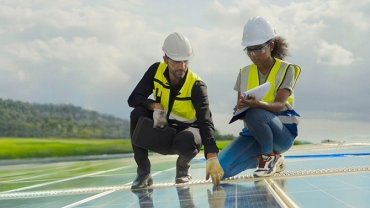
The recent extended drought and catastrophic bushfires have highlighted the growing effects of climate change and the need for a net-zero carbon future for Australia. A renewable energy transition is key since other industries will rely on electrification to decarbonise their processes. The Renewable Energy Target (RET) scheme gave renewable projects a boost when renewable technology prices were non-competitive. However, this economic reality shifted when renewable technologies such as wind and solar reached parity with thermal generation. With renewable technology prices falling, the industry experienced an investment boom with 14 gigawatts (GW) of new renewable projects being accredited under the RET from 2001 to 2019. From August 2019, renewable energy represented 23.5% of Australia's total electricity generation (by capacity, GW), achieving the RET.
Investment in new build generation of all technologies has slowed since the RET was achieved, despite the pipeline of scheduled closures for coal-fired power stations and Australia’s emission reduction commitments under the Paris Agreement. These facts highlight the need to overcome current investment barriers. In this paper, we have explored key market issues and have given the voice to industry perspectives in order to unlock Australia’s renewable energy investment potential.
PwC interviewed over 50 industry participants across the value chain including investors, developers, electricity retailers and large electricity consumers. Participants shared their views anonymously on a range of industry and market topics. Regulatory bodies were not interviewed for this paper in order to produce an industry only view. We have identified the following key challenges:
- Transmission and distribution underinvestment – resulting in extended connection delays, reductions in marginal loss factors (MLF), curtailment and system strength issues
- Dealing with carbon – there is an absence of a prescriptive carbon policy and pricing and a need to link renewable energy generation to carbon abatement certificates.
Tackling these challenges is extremely important to stimulate investment in order to achieve emission reduction goals and support the economic recovery from the COVID-19 crisis
Power and Utilities insights


The changing energy order
Global energy demand continues to grow and, along with it, the urgency of understanding the local, country-by-country dynamics of the energy transition.

Who will win (and lose) in the new era for Australia’s energy utilities
New PwC research shows the legacy model of the global energy utilities sector will be unrecognisable within a decade.

Global M&A trends in energy, utilities and resources: 2025 mid-year outlook
Strategic M&A in energy, utilities & resources will continue to unlock 'value in motion' as dealmakers respond to accelerating demand and transition goals.
Contact us






© 2017 - 2025 PwC. All rights reserved. PwC refers to the PwC network and/or one or more of its member firms, each of which is a separate legal entity. Please see www.pwc.com/structure for further details. Liability limited by a scheme approved under Professional Standards Legislation.









